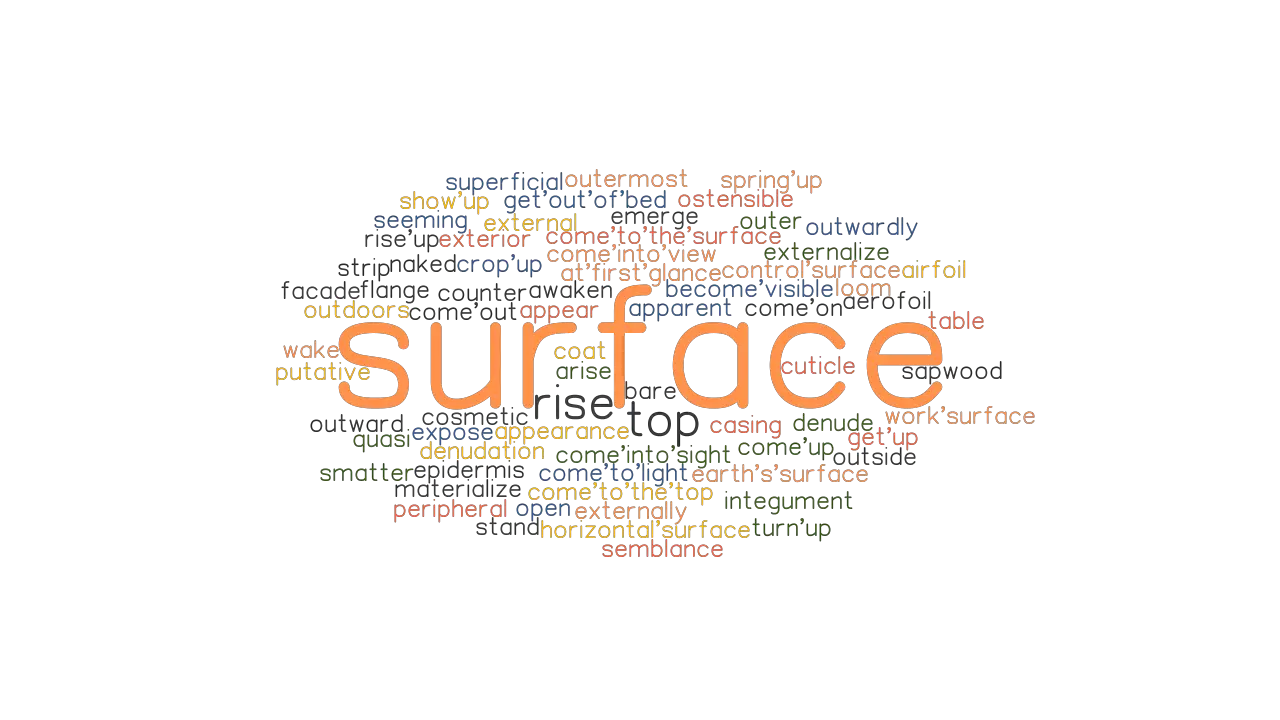


If you’re in a new or uncomfortable situation, it’s always nice to see a friendly face. Nondescript is ultimately derived from the Latin word d?scr?bere. Being nondescript is a good thing if you’re a private eye, but probably not so much if the word is being used to describe a piece of art or person you just met.
#Whats another word for appears how to
Often when we say something or someone is “nice,” a better word might be nondescript, which means “of no recognized, definite, or particular type or kind.” It means we’re not sure how to categorize them, that there’s nothing that really stands out about that person or thing. Mundane is first recorded around 1425–75 and stems from the Latin word mundus (“ world“). Mundane is defined as “common ordinary banal unimaginative.” So, while you probably don’t want to tell Grandma Gertie you find the gift she gave you “mundane,” if someone’s asking you for a recommendation about a restaurant you recently visited, this word will give them a better idea of what they might expect than “nice.” We can’t think of anything nice to say, so we say … “nice.” Sometimes when we’re trying to be polite, we describe someone or something as “nice” to avoid saying something is not blowing our socks off or it’s mundane. The word is found around 1400–50 and is derived from the Latin word pol?re, meaning “to polish.” mundane

Or if that’s way before your time, and you’re thinking “Eddie, who?!,” think about it this way: you may force yourself to be polite to your annoying, brown-nosing coworker when you really feel like stomping on their toes. He was as polite and nice as could be on the surface, but a troublemaker when no one was looking. Take Eddie Haskell from the ’50s sitcom Leave It to Beaver. And while you may come off as nice, being polite isn’t always an indicator of someone’s actual nature.

It stems from the Old English word gecynde, meaning “natural, genial.” politeīeing polite is about following etiquette rules (saying “please,” “thank you,” and “yes, ma’am”) and not being rude. This is an old word, with first evidence of it appearing before the year 900. It’s not just about being polite, but it’s having “a good or benevolent nature or disposition, as a person.” Kind is different than nice because it involves empathy and caring about others. Instead of teaching our kids to be nice, what we really want to teach them is to be kind. Let’s turn our attention back to synonyms: what other choices do you have that may be nicer than nice? Let’s take a look. And from there, nice evolved into our go-to, catch-all term for anything, well, nice. Nice began to refer to “a person who was finely dressed, someone who was scrupulous, or something that was precise or fussy.”īy the late 1500s, nice was further softening, describing something as “refined, culture,” especially used of polite society. However, by the 1400s, a new, more neutral sense of nice was emerging. And for almost a century, nice was used to characterize a “stupid, ignorant, or foolish” person. Nice, it turns out, began as a negative term derived from the Latin nescius, meaning “unaware, ignorant.” This sense of “ignorant” was carried over into English when the word was first borrowed (via French) in the early 1300s. The funny thing is that the word’s origins aren’t all that nice at all. The not-so-nice origins of the wordĪn adjective, nice is defined as “ pleasing agreeable delightful.” All of which are great synonyms for the word. We may be hedging around our real feelings or mean something else entirely. Not that there’s anything wrong with vanilla, especially if sprinkles are involved! But when there’s a whole world of other choices, it’s good to have some options in your vocabulary-some may even be twice as nice.Īlso, it’s worth considering that when we describe someone or something as nice, that’s not exactly what we mean. It’s hard to think of a more overused, vanilla word than nice.


 0 kommentar(er)
0 kommentar(er)
